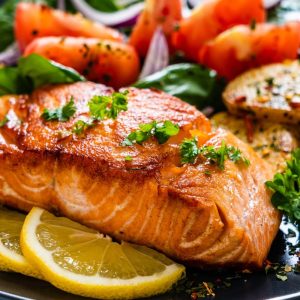
Food allergies can significantly impact a person’s life, making it crucial for individuals living with these allergies to manage their condition carefully. It can be challenging to find safe and delicious options, but with proper knowledge and planning, it is possible to enjoy a diverse and satisfying diet. In this article, we will discuss effective ways to manage food allergies while still enjoying tasty meals.
Understanding Food Allergies
Food allergies occur when the immune system reacts abnormally to certain proteins found in specific foods. Symptoms can range from mild to severe and may include rashes, hives, gastrointestinal issues, difficulty breathing, or, in extreme cases, anaphylaxis. Common allergens include peanuts, tree nuts, shellfish, fish, milk, eggs, soy, and wheat.
Consulting with a Healthcare Professional
If you suspect you have a food allergy, it is crucial to consult with a healthcare professional. They can conduct various tests, such as skin prick tests or blood tests, to determine which allergens trigger your symptoms. A healthcare professional can help identify safe foods, create an allergen avoidance plan, and provide guidance on managing and treating potential allergic reactions.
Reading Food Labels Carefully
When managing food allergies, reading food labels becomes an essential habit. Manufacturers are required to disclose common allergens in their products, making it easier to identify potential allergenic foods. Look for clear and concise allergen statements, such as “Contains: milk, eggs, soy,” or “May contain traces of peanuts and tree nuts.” Avoid products with vague labels or those with hidden ingredients that may trigger an allergic reaction.
Cooking at Home
Preparing meals at home gives you full control over the ingredients used, reducing the risk of accidental allergen exposure. Experiment with different allergy-friendly recipes and substitute allergenic ingredients with safe alternatives. For example, use almond or oat milk instead of cow’s milk, or swap wheat flour with gluten-free options like rice flour or almond flour. Cooking at home also allows you to eliminate cross-contamination risks by using separate utensils and cooking surfaces for allergenic and non-allergenic foods.
Educating Family, Friends, and Restaurant Staff
Informing family members, friends, and restaurant staff about your food allergies is essential to ensure your safety when dining out. Educate them about the severity of your allergies and the importance of avoiding cross-contamination. Ask questions about the ingredients used in dishes, request specific preparations, and always double-check before consuming a meal. Many restaurants now offer allergy-friendly menus or can accommodate specific dietary needs with advance notice.
Building a Balanced Diet
When managing food allergies, it is vital to maintain a balanced diet to ensure that you receive all the necessary nutrients. Focus on incorporating a variety of fruits, vegetables, whole grains, lean proteins, and healthy fats into your meals. Consult with a registered dietitian to ensure you are meeting your nutritional requirements and consider taking supplements if needed.
Exploring Allergy-Friendly Products and Brands
Thankfully, there are a growing number of allergy-friendly products and brands available in the market today. These can include allergen-free snack bars, gluten-free pasta, dairy-free ice cream, and much more. Stay up to date with new releases in allergy-friendly foods to discover enjoyable options that suit your dietary needs.
Cross-Contamination Prevention
Even with proper precautions, it is still essential to be vigilant about cross-contamination. Ensure that all utensils, cutting boards, and cooking surfaces are thoroughly cleaned before use to prevent allergen traces. Avoid cooking allergenic and non-allergenic foods simultaneously and store them separately to prevent accidental contamination.
Emergency Preparedness
Despite the best efforts, accidental exposure to allergens can sometimes occur. As a precaution, always carry prescribed emergency medications, such as epinephrine auto-injectors, to manage severe allergic reactions. Educate yourself and those around you on how to use these medications correctly.
Conclusion
Managing food allergies doesn’t mean sacrificing taste or variety in your meals. By understanding your allergies, communicating effectively with healthcare professionals, reading food labels carefully, cooking at home, educating your loved ones and restaurants, building a balanced diet, exploring allergy-friendly products, preventing cross-contamination, and being prepared for emergencies, you can safely and deliciously manage your food allergies. Remember to prioritize your health and well-being and don’t hesitate to seek professional guidance when needed.


